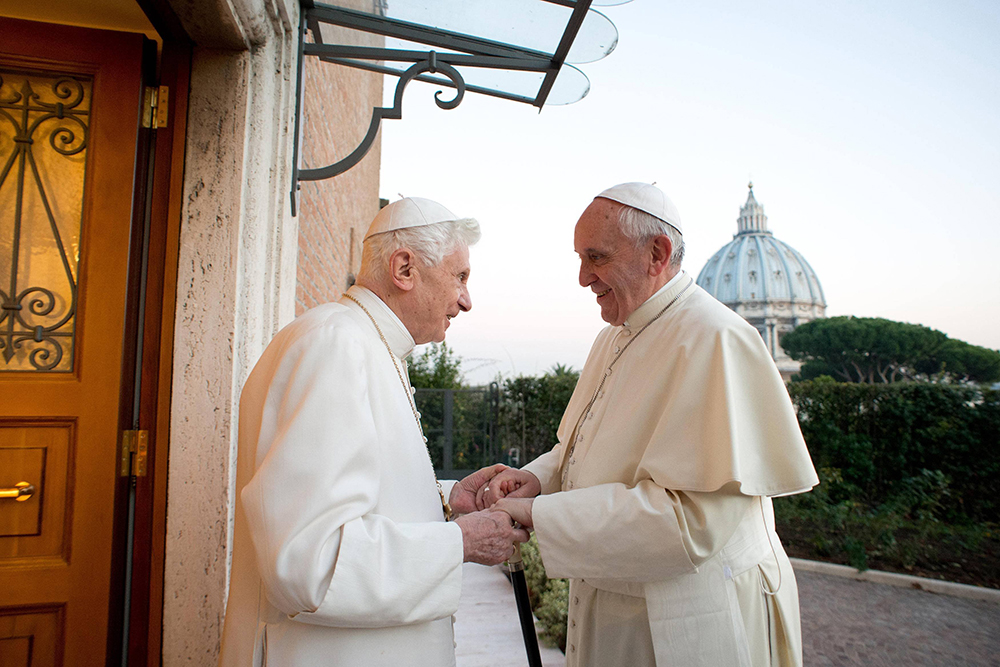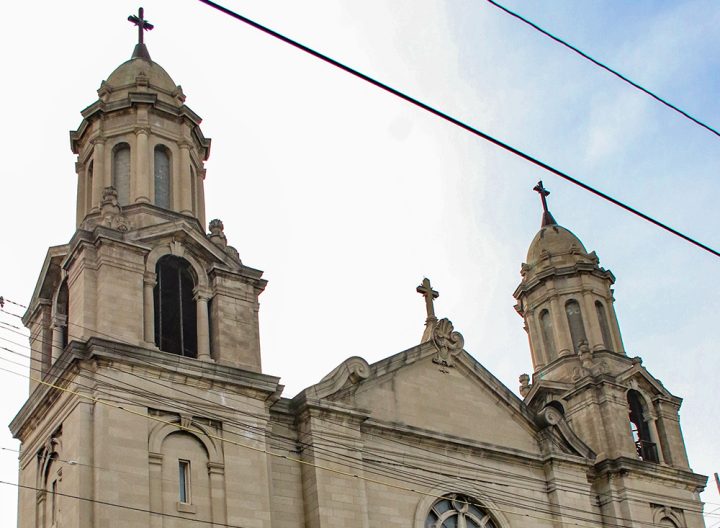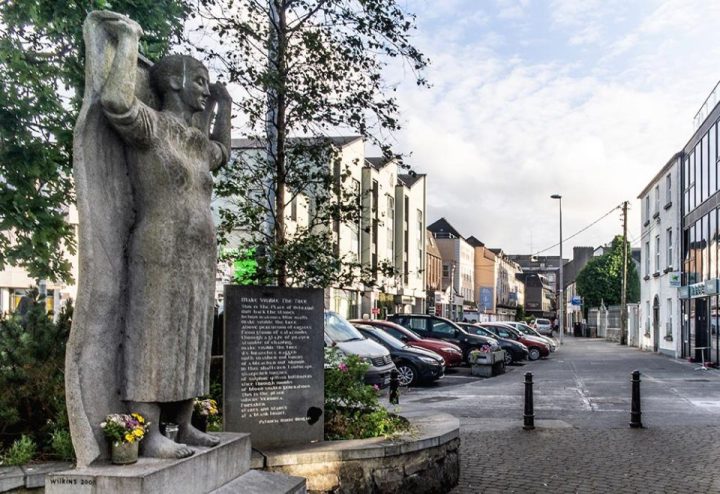
While memories of the shocking moment when Pope Benedict XVI resigned Feb. 11, 2013, are still fresh for the German pope’s collaborators, it is Pope Francis who reflects on Benedict’s historic decision in a newly published book interview.
« He was a man who had the courage to resign and, from that moment on, he continued to accompany the church and his successor, » the pope told Javier Martínez-Brocal, Vatican correspondent of the Spanish newspaper ABC.
In Pope Francis: The Successor. My Memories of Benedict XVI, set to be published in Spanish April 3, the pontiff told Martínez-Brocal what it was like to live for a decade with the first pope emeritus in 600 years.
« Benedict and I had a very deep relationship and I want it to be known, I want it to be known without intermediaries, » Francis said.
Francis admits in the book they disagreed at times. « Sometimes I would raise an issue; sometimes Benedict did. ‘I am concerned about this problem,’ one would say to the other, » Francis recalled. « We would talk about everything, very freely, » he told Martínez-Brocal.
Italian Dr. Patrizio Polisca, Benedict’s personal physician, told OSV News that for him the first sign Benedict would resign was the conversation he had with the German pontiff prior to World Youth Day in Rio de Janeiro.
« We were sitting together, just the two of us, talking about the imminent apostolic journey to Brazil for World Youth Day, » Polisca said. « I suggested that we should make a video connection from Rome when he’s there, because his health did not allow him any more to spend so many hours in flight. But he insisted that the pope must be present because people needed him. And that the pope would be there. »
« I didn’t understand what he meant, » he recalled, « but when he suddenly asked a question: ‘Will you take care of me later as well, until the end?’ — then I understood. »
He remained Benedict’s personal physician until the pope’s death Dec. 31, 2022.
Saverio Petrillo, director of the papal summer residence in Castel Gandolfo under three popes, said he asked himself on Feb. 28, 2013, the day of Benedict’s departure from the Vatican: « Where will he actually live? What will he wear? Will he appear in public any more? » he recalled in a conversation with OSV News.
Benedict was not the first pope in history to resign from his ministry. Celestine V abdicated in 1294, and the last pope to resign before Benedict was Gregory XII in 1415. But Joseph Ratzinger was the first who, after resigning, began to use the title of « Papa Emeritus. »
Canon law mentions the possibility of the pope’s resignation, but what happens after that has never been formalized.
« Therefore, we have the only case in the history, that of Benedict XVI, a retired pope, who became a precedent for the future canonical norm, and in fact only in the future will we see whether this example will be accepted as a model for other popes, » Fr. Roberto Regoli, a church historian from Pontifical Gregorian University, told OSV News.
« The void rang in our ears. I went to work at the Apostolic Palace as I did every day, but there were no audiences, no official visits, the papal apartment was locked, » Luciano Firmani, a longtime elevator operator at the Apostolic Palace, recalled about that memorable February. « There was no time of ‘sede vacante’ like the one we had lived after the death of John Paul II. Benedict XVI was still alive and he stayed just 40 km (25 miles) away from the Vatican, » Firmani told OSV News.
Castel Gandolfo director Petrillo remembered March 2013 as a special month of the two popes.
« My driver, employed at the papal residence, had an absolutely unique privilege when he carried two popes in his car from the gardens to the palace here in Castel Gandolfo. They sat in the back seat next to each other. It was absolutely astonishing » he said.
Benedict’s decision to settle in a monastery in the Vatican Gardens was another unprecedented step in the history of papacy. For some, however, it was not the best one.
« The choice to live just 200 meters (650 feet) from the reigning pope was quite controversial, because from the very beginning it represented a kind of alternative, » explained Gianfranco Svidercoschi, longtime Vatican journalist.
« People who were the opposers of Pope Francis and entered the Vatican in order to meet Pope Benedict were automatically perceived as those who were building a front opposed to the reigning pope, » he told OSV News.
Benedict’s personal doctor, however, disagreed. « Pope Benedict himself with his discreet presence in the Vatican simply wanted to continue serving the church and his legal successor, » Polisca emphasized, clearly touched with emotions.
This is precisely one of the German pontiff’s virtues that Francis admired, as he admitted in the new book. Benedict « broadened the perspective, » Francis said of the relationship of the two popes. « He had that ability to broaden my perspective to help me make a good decision. He never said: ‘I don’t agree.’ On the contrary, he acknowledged that ‘this is fine. But we should also consider this other element, » Francis explained to Martínez-Brocal.
« He broadened my perspective, always, » Francis said of Benedict.



